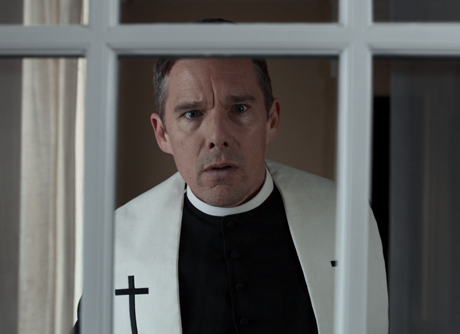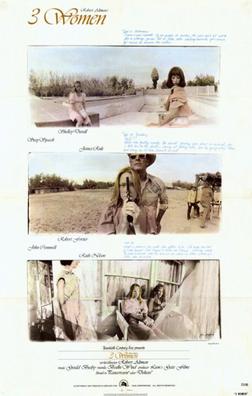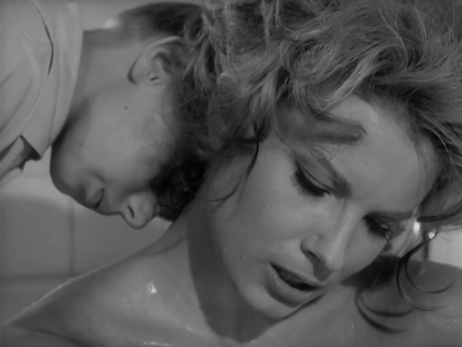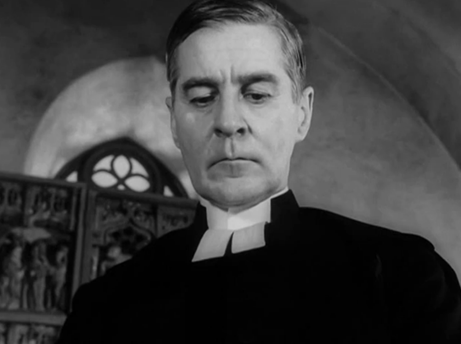
“You’re always in the Garden. Even Jesus wasn’t always in the Garden, on his knees, sweating blood. He was on the Mount. He was in the marketplace. He was in the temple. But you, you’re always in the Garden.”
Paul Schrader and Martin Scorsese unknowingly formed a legendary partnership in making Taxi Driver (1976) that has left an indelible mark on cinema. Despite their diverging backgrounds, it seemed like they were very much kindred spirits. At least, they understood each other.
Scorsese of course, grew up in the Catholic Church even considering becoming a priest. Schrader likewise, had a deeply religious upbringing rooted in reformed theology even attending Calvin College. Aside from both being cinephiles, each man has battled through his share of demons and yet they have come out on the other side no doubt wiser.
Thus, with the release of Scorsese’s deeply spiritual passion project Silence (2016) a couple years ago, it seems fitting Schrader followed up with First Reformed soon after. I’m not sure if it’s mere coincidence or not but by this time in their lives, with space for retrospection, they have come to a crossroads to make daring, personal pictures about religious faith.
The opening shot is instantly recognizable. We have the stark symmetry of a church steeple. The religious space lacks the same type of iconography as the Catholic Church because the Calvinists came from a tradition foregoing any amount of pomp & circumstance for a stripped-down aesthetic. All the focus was on the cultivation of the spiritual life.
There still is history, as this particular church is just about to celebrate its 250th anniversary and it was once a stop on the Underground Railroad years before. The resident reverend’s tours include touting the Dutch Colonial architecture and showing wide-eyed kids the trap doors escaped slaves used to hide in.
Now it’s ironically also a spiritual museum-piece — a creaky religious relic — attended by a few stray parishioners. The real center of religious activities is at Abundant Life a well-meaning but somewhat sanitized megachurch set up across the road. Perfectly reflected by their cafeteria wall emblazoned with the words from Acts 2.
The story actually begins with an experiment of sorts. Reverend Ernst Toller (Ethan Hawke) will keep a journal for an entire year in a notebook and then he will destroy it. There is an obvious finality to this. He’s set himself a hard timeline.
Though he mentions word documents and digital files, he might as well come out of a Bresson picture. His possessions are few and far between. A well-worn Bible sits on his bedside table accompanied by the works of Thomas Merton and G.K. Chesterton. His landscape and surroundings are just as stark and humble. Interiors are kept equally simple and straightforward.

The unadorned yet meticulous composition use geography whether structures or a bit of symmetry to set up scenes. Inside the church with the lines of pews that might be plucked directly from Winter Light (1963). Then, along a row of houses in a neighborhood as a car pulls up to a house.
One house he pays a call on belongs to Mary (Amanda Seyfried), a young pregnant woman, who grew up in the church and is now worried about her husband Michael’s mental stability as of late. She worries it will affect their future child. The reverend might be able to help.
Upon their first dialogue together, it becomes obvious he is not a learned man. He had a stint in jail for his environmental activism in Canada and currently holds down a job at the local Home Depot.
But he gives a cogent account of why he does not want to bring a child into the world. By 2050 all scientific analysis seems to suggest dire straits are ahead if we do not make radical changes on an international level. Because climate, water levels, and everything else will not leave man unimpeded.
His question is simple. How do you sanction bringing a girl into the world who is full of hope and naivete? Then, she grows up and as a woman, she looks you square in the eyes and says, “You knew it all along, didn’t you?” And yet you brought her into this world of death. Most of what the reverend does is listen to his grief. The only response possible is that the blackness is not a new phenomenon. Man, woman, and child are born to trouble. It seems small comfort.

As the themes begin to interweave there are continuous nods to Ingmar Bergman’s Winter Light (1963) from the snow motif to a deeply troubled husband and even a female associate who takes a deep concern in the well-being of our protagonist. You can sense Schrader acknowledging his deep abiding affections for Robert Bresson — an obvious reference point being Diary of a Country Priest (1951) — with a man of faith suffering from a mysterious ailment. It only serves to exasperate his human relationships and give a physical manifestation to his existential crisis.
In maintaining the transcendental spirituality of the film, Tarkovsky levitations and Dreyer-like “resurrections” are also evoked and the list goes on and on. In fact, it amazes me how obvious and plentiful the allusions are. Schrader barely tries to hide his affinities for certain pictures. They are most assuredly there being represented and it’s generally satisfying.
But it is a film that is also born out of the mind who brought us Taxi Driver and the ties are closer than we might expect. Because it becomes more akin to the desolate alienation of Travis Bickle as the story plods on. After experiencing a tragic death and witnessing the ways the modern world functions, Toller seems to see the need for a martyr in an unjust world. He becomes increasingly alienated.
His life involves helping out with the homeless food line, sitting in on the youth small group, and of course, his tours and Sunday duties. But it’s the old conundrum. He feels confined to the walls of his church. It doesn’t seem like he’s necessary for anything aside from spiritual comfort. He has no true impact on people lives and he himself is struggling to keep in communication with God. Solitary prayer seems empty. Hence a nightly journal.
Something happens when he gets in a spat with a local big whig over negative publicity from a funeral for Michael Masana. It was held at a toxic waste dump with a choir singing an environmentally conscious Neil Young tune. Toller gets lambasted for his “political behavior,” though he was admittedly only upholding the man’s wishes. And yet he is beginning to question how people who proclaim to follow God cannot take a greater stake in preserving his creation.
In documenting Martin Luther King Jr.’s efforts, Ava DuVernay’s Selma (2015) was a call-to-action in the realm of social justice. For all those people who claim or at least strive to be good, morally upright people, it is clear this is a universal fight. Likewise, First Reformed is a call or at least a meditation on environmental justice because humans are meant to be stewards. It is not completely about extremism (though Toller begins to inch that way) but in some ways, we are meant to live radical lives. Full of radical love and a radical conception of justice for the earth and other human beings.
But one could say this is not the true punchline. For that we must revert back to some of the deep-set themes of Schrader’s career, returning once again to his first collaboration back with Martin Scorsese back in 1976.
Because First Reformed has one of the most abrupt endings in recent memory. It catches us off guard on numerous fronts. We must start with the ambiguity which is nothing new. Travis Bickle entered the pantheon of cinema characters partially due to the enigma that clouds his fate in Taxi Driver.
Most people who have ever been ambushed by the film will recall the ending. Travis goes on his crusade to clean up the filth and it’s a violent rampage in the eyes of the world but for him, it’s an act of triumphant heroism.
In the final moments, he’s back in his cab again — his personal cathedral — driving the streets and there’s his untouchable girl, Cybil Sheppard, who appears in the back seat. He sees her through his rearview window and rides off. It seems almost impossible to read it in the literal sense. How could this be? Is this his own personal delusion? Could this actually be real? I know my own inclinations but I don’t know what to believe.
First Reformed is much the same. Here we have the Reverend about to take his poison — looking to end his life — in the face of such a dreadful world. Then a door opens and there stands the one person who might save him, Mary, appearing in the doorway like an angel.
They embrace and then beginning kissing and we spiral around and around them in one of the most violently uninhibited camera setups in the film. We have broken out of the harsh asceticism of the entire movie thus far.
Is it about this salvation coming through the physical union between two people? This could be the Ordet-like resurrection or maybe like Taxi Driver it’s all part of the ultimate delusion. The bottom line is we don’t know and Schrader doesn’t tip us. Much like Silence, what’s paramount is what we fall back on in response.
Can we read this as a story of despair or hope? The words of Toller echo through my mind, “Wisdom is holding two contradictory truths in our minds simultaneously.” This is First Reformed at its finest, ever oscillating between the two defining poles of any life.
4/5 Stars
“There is not a square inch in the whole domain of our human existence over which Christ, who is Sovereign over all, does not cry, Mine!” – Dutch Prime Minister and Theologian Abraham Kuyper




 Supposedly Robert Altman’s inspiration for 3 Women came from a dream he had, as with many of the most original ideas out there. Admittedly, in some ways, the resulting project feels like his rendition of a European art-film. It has some roots in Bergman and Polanski while transposing the action to his usual locales that are inbred into the fabric of America — places like the California deserts and Texas.
Supposedly Robert Altman’s inspiration for 3 Women came from a dream he had, as with many of the most original ideas out there. Admittedly, in some ways, the resulting project feels like his rendition of a European art-film. It has some roots in Bergman and Polanski while transposing the action to his usual locales that are inbred into the fabric of America — places like the California deserts and Texas.







 Minus feels he is lacking love and affection. He feels like his sister makes fun of him while his father is aloof and withdrawn from his life. Meanwhile, David is grief-stricken in private, realizing that his daughter’s condition is incurable and yet he also regrets his morbid fascination with it. David tries to cope with his wife’s condition, but although she seemed jovial and fine at first, Karin’s situation begins to decline.
Minus feels he is lacking love and affection. He feels like his sister makes fun of him while his father is aloof and withdrawn from his life. Meanwhile, David is grief-stricken in private, realizing that his daughter’s condition is incurable and yet he also regrets his morbid fascination with it. David tries to cope with his wife’s condition, but although she seemed jovial and fine at first, Karin’s situation begins to decline.

